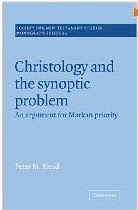The theology of hermeneutics in Judaism's foundational literature tells us the assumptions with which early Judaism regarded Scripture. The forerunners of the Tannaim (the Pharisees and various named individuals living before 70 CE) followed mainly Nomological assumptions, ie: Scripture is totally self-consistent; every detail in Scripture is significant; Scripture is understood according to its context; Scripture does not have any secondary meaning; there is only one valid text form of Scripture. Hellenistic Judaism (eg Philo and Josephus) and Sectarian Judaism (mainly Qumran) had an inspirational hermeneutic theology, viewing Scripture as though it contains hidden or spiritual meanings which are not obvious to the casual or uninspired reader. Rabbis after 70 CE introduced methods of the inspirational approach to find Scriptural foundations for new rulings.
"Theology of Hermeneutics"
The theology of hermeneutics in Judaism's foundational literature tells us the assumptions with which early Judaism regarded Scripture. The forerunners of the Tannaim (the Pharisees and various named individuals living before 70 CE) followed mainly Nomological assumptions, ie: Scripture is totally self-consistent; every detail in Scripture is significant; Scripture is understood according to its context; Scripture does not have any secondary meaning; there is only one valid text form of Scripture. Hellenistic Judaism (eg Philo and Josephus) and Sectarian Judaism (mainly Qumran) had an inspirational hermeneutic theology, viewing Scripture as though it contains hidden or spiritual meanings which are not obvious to the casual or uninspired reader. Rabbis after 70 CE introduced methods of the inspirational approach to find Scriptural foundations for new rulings.
Subscribe to:
Post Comments (Atom)













No comments:
Post a Comment